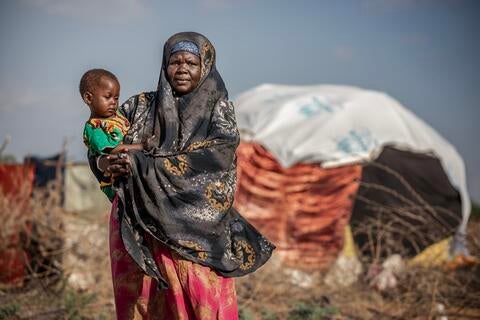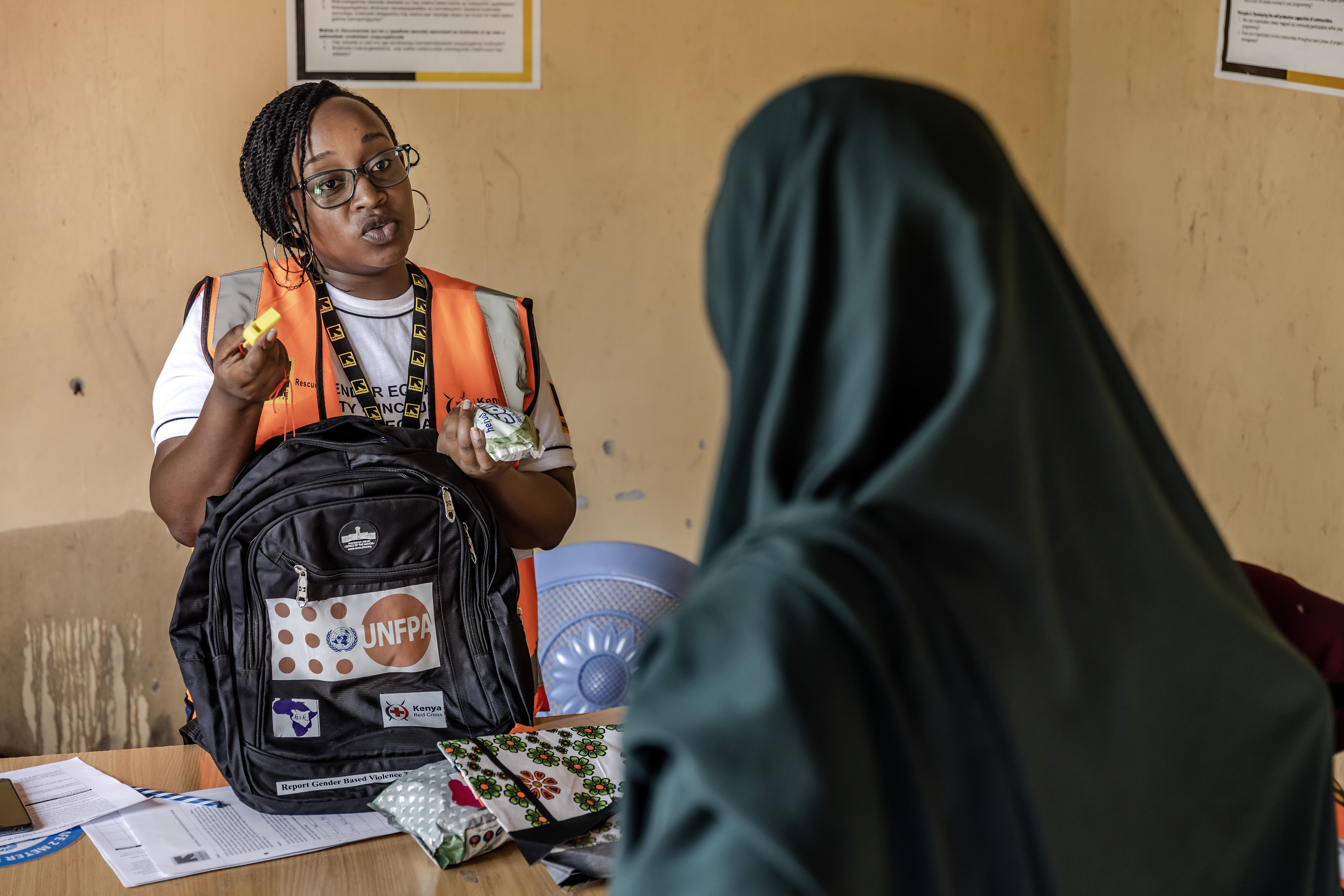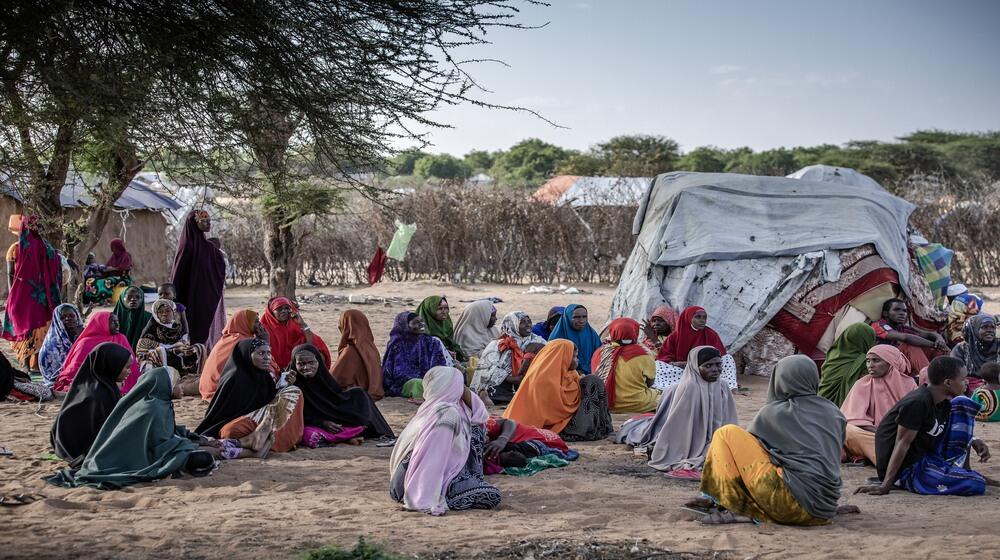Daadab, Kenya - Rukia Yaroow Ali arrived at the Hagadera refugee camp in Daadab just 16 days ago. The 38-year-old says hunger and insecurity forced her to flee her village in Jilib, Somalia with her nine children in tow. “My husband was a successful farmer, but when the drought hit, he was not able to grow any food,” she says. “The burden of providing for the family became too much, causing friction between us. One day, he told me he was going out to look for work, but he never returned.”
The ongoing drought in the horn of Africa region has placed a great deal of stress on families, with women and girls bearing a disproportionate cost of the climate-related crisis. Like Rukia, many are having to make precarious journeys in search of food and water, and to displacement camps where they can access humanitarian assistance, including health services for their children.
“I came here with nothing, and could not even get food or shelter for my children,” says Rukia. “I still owe a debt of 4,000 shillings ($33), to the man who transported us here. I don’t know how I am going to pay him.” Rukia and her children now reside in a shelter constructed from sticks and cloth on the periphery of Hagadera camp, alongside other new arrivals, including her brother and his family who arrived a couple of months earlier.

Somalia, travelling to Daadab refugee camp in Northern Kenya.
UNHCR reports indicate that 45,000 individuals fled the drought in Somalia in 2022, seeking refuge at the Daadab refugee camps of Hagadera, Ifo, and Dagahaley located in Northern Kenya.
“In Hagadera camp, we have had a nearly 20% increase in the population since May 2022, which causes a huge strain on available resources,” says International Rescue Committee (IRC) Senior Women Protection and Empowerment Officer Jane Ambale.
UNFPA is supporting IRC to conduct screening for gender-based violence among the new arrivals, many of who are unregistered and therefore unable to access different services in the camp. "Our goal is to identify women and girls who are survivors or at risk of gender-based violence, and to provide them the critical information and services they need,” says Ms. Ambale.

during a GBV screening session in Hagadera refugee camp, Daadab, Northern Kenya.
The lack of shelter and access to food rations for undocumented refugees multiplies their vulnerability to gender-based and sexual violence and abuse, as they often have to rely on others to meet their basic needs. “In August 2022, a woman came to an IRC health center in Hagadera seeking help after she was raped by a purported good samaritan who offered to house her and her children on arrival,” narrates Ms. Ambale.
IRC operates a gender-based violence support center that acts as a safe space for women and girls in Hagadera, offering psychosocial support and referrals for medical care and related services. In the period between May to December 2022, the center served 2,000 women including 400 new arrivals, providing them with dignity kits to meet their hygiene needs as they settle into the camp.
The center holds regular community outreach events and weekly listening sessions where women gather to discuss their protection needs and safety concerns. “Often, survivors are unaware of where to seek help, or afraid to speak up for fear of losing the support of the community. Our outreach events ensure that we reach as many new arrivals as possible, letting them know that help is available, whenever they need it,” says Ms. Ambale.
As communities grapple with the worst drought experienced in the last 40 years, pre-existing gender inequalities and the deprioritization of sexual and reproductive health services compound an already dire situation to place thousands of women and girls' lives at risk.
UNFPA is scaling up the delivery of these life-saving reproductive health and protection services and supplies to meet the rising need, and has launched an appeal for for $113.7 million for its Response Plan for the Horn of Africa Drought Crisis 2022-2023.


